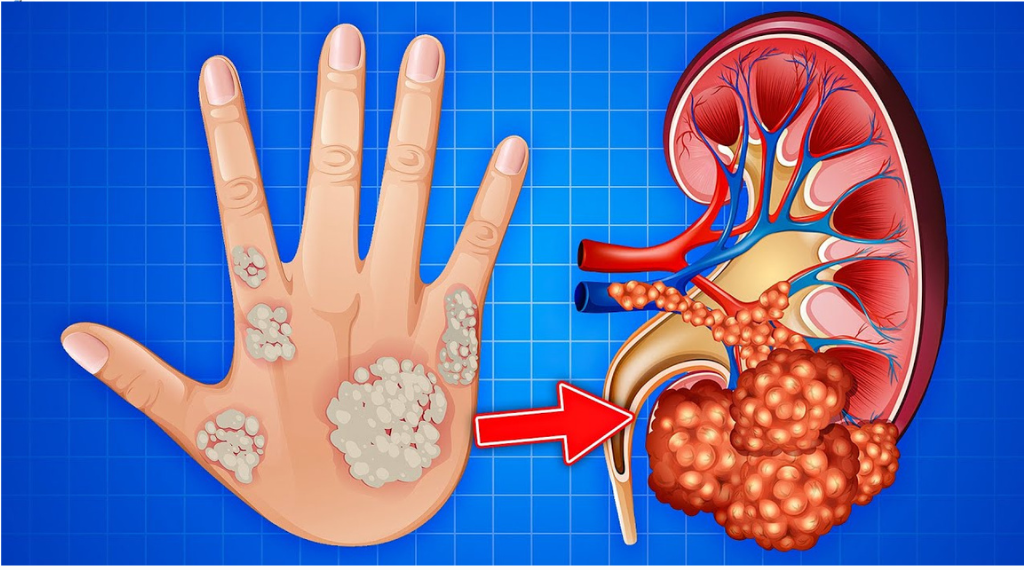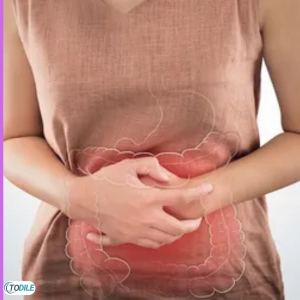Introduction
Your kidneys are two bean-shaped organs that work tirelessly to filter waste products, excess fluids, and toxins from your blood, producing urine and maintaining your body’s delicate chemical balance. Each day, they process approximately 200 quarts of blood to remove about 2 quarts of waste and water. When kidney function declines, waste can build up to dangerous levels in your body, leading to serious health complications.
Kidney disease often develops silently over years, which is why it’s frequently called a “silent killer.” By the time symptoms become obvious, significant damage may have already occurred. Globally, chronic kidney disease affects approximately 10% of the population, and early detection is crucial for slowing progression and preventing kidney failure. Understanding the warning signs can help you seek medical attention before irreversible damage occurs.
Causes and Risk Factors
Kidney disease develops when something impairs kidney function, causing damage that worsens over time. The two most common causes are diabetes and high blood pressure, which together account for about two-thirds of all cases.
Primary Causes:
Diabetes damages the small blood vessels in the kidneys, impairing their filtering ability. High blood pressure can damage the blood vessels in and around the kidneys, reducing their effectiveness. Other causes include glomerulonephritis (inflammation of the kidney’s filtering units), polycystic kidney disease (an inherited disorder causing cysts in the kidneys), prolonged obstruction of the urinary tract, recurrent kidney infections, and certain medications or toxins.
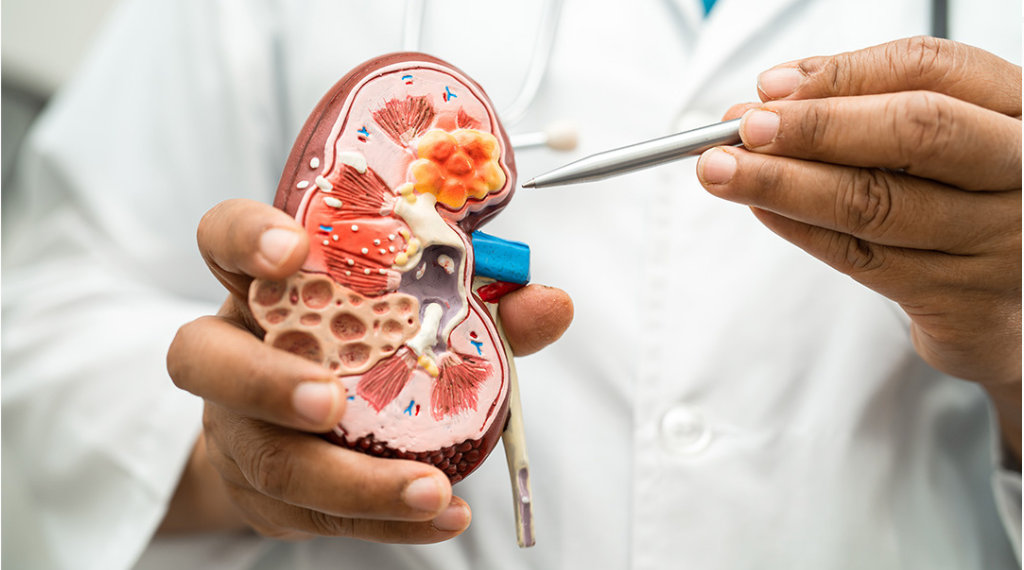
Key Risk Factors:
Several factors increase your likelihood of developing kidney disease. Age plays a role, as kidney function naturally declines after age 60. A family history of kidney disease significantly elevates risk, particularly for polycystic kidney disease and certain inherited conditions. Cardiovascular disease is closely linked to kidney problems, as both conditions share similar risk factors and can worsen each other. Obesity strains the kidneys and increases diabetes and hypertension risk. Smoking damages blood vessels throughout the body, including those in the kidneys. Additionally, long-term use of certain pain medications, particularly nonsteroidal anti-inflammatory drugs (NSAIDs), can harm kidney tissue.
Symptoms: 10 Warning Signs You May Have Kidney Disease
Kidney disease symptoms often appear gradually and may be subtle initially. Here are ten important signs to watch for:
1. Changes in Urination: You may notice increased frequency, especially at night, or decreased urine output. The urine might appear foamy or bubbly due to excess protein, or darker in color. Some people experience difficulty urinating or feel pressure during urination.
2. Persistent Fatigue and Weakness: When kidneys fail to filter properly, toxins accumulate in the blood, causing severe fatigue that doesn’t improve with rest. The kidneys also produce erythropoietin, a hormone that stimulates red blood cell production, so damaged kidneys can lead to anemia, contributing to exhaustion and weakness.
3. Swelling (Edema): Fluid retention causes swelling in the ankles, feet, legs, hands, or face. This happens because damaged kidneys cannot remove excess fluid effectively. You might notice your shoes feeling tighter or indentations remaining when you press on swollen areas.
4. Shortness of Breath: Fluid buildup in the lungs (pulmonary edema) can make breathing difficult. Additionally, anemia resulting from kidney disease reduces oxygen delivery to tissues, causing breathlessness even with minimal exertion.
5. Persistent Itching: Waste buildup in the bloodstream can cause severe, persistent itching all over the body. This condition, called uremic pruritus, occurs when the kidneys cannot effectively remove toxins and maintain proper mineral balance.
6. Metallic Taste and Ammonia Breath: Accumulated waste products in the blood can cause a metallic taste in your mouth or breath that smells like ammonia or urine. This may also reduce your appetite, particularly for protein-rich foods.
7. Nausea and Vomiting: The buildup of waste products (uremia) often causes persistent nausea, vomiting, and loss of appetite. This can lead to unintended weight loss and malnutrition if left untreated.
8. Muscle Cramps and Twitches: Electrolyte imbalances resulting from impaired kidney function can cause painful muscle cramps, particularly in the legs, and muscle twitching. Low calcium levels, high phosphorus, and improper nerve function all contribute to these symptoms.
9. High Blood Pressure That’s Difficult to Control: The kidneys help regulate blood pressure, so kidney disease can cause or worsen hypertension. If your blood pressure suddenly becomes difficult to control despite medication, it may indicate kidney problems.
10. Cognitive Problems: Severe kidney disease can cause difficulty concentrating, memory problems, confusion, or trouble focusing. Anemia and toxin buildup both affect brain function, causing what’s sometimes called “brain fog.”
It’s important to note that these symptoms can also indicate other health conditions, so experiencing one or more doesn’t automatically mean you have kidney disease. However, if you notice several of these signs, especially if you have risk factors, consult your healthcare provider promptly for proper evaluation.
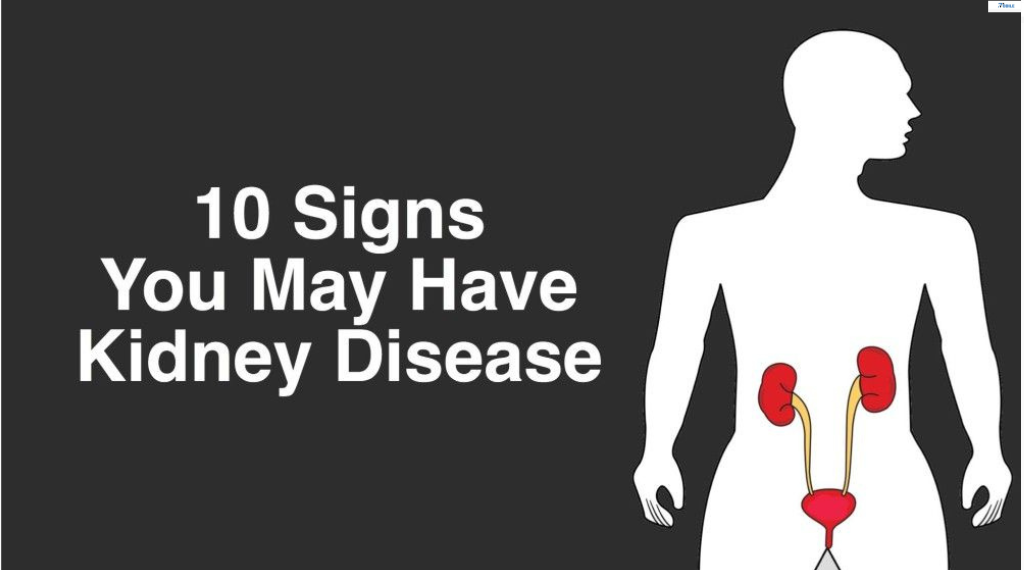
Treatment and Prevention
Managing kidney disease requires a comprehensive approach that addresses both the underlying cause and the symptoms while slowing disease progression.
Medical Treatments:
Treatment depends on the stage and cause of kidney disease. For early-stage disease, controlling underlying conditions is paramount. Blood pressure medications, particularly ACE inhibitors and ARBs, protect the kidneys while lowering blood pressure. Diabetes management through medication and lifestyle changes is essential for diabetic kidney disease. Your doctor may prescribe medications to control anemia, manage cholesterol levels, reduce swelling, and protect bone health. As kidney disease progresses to advanced stages, dialysis (filtering blood through a machine) or kidney transplantation may become necessary.
Natural and Lifestyle Remedies:
Dietary modifications play a crucial role in managing kidney disease. A kidney-friendly diet typically involves limiting sodium intake to reduce fluid retention and blood pressure, restricting phosphorus and potassium as kidney function declines (under medical guidance), monitoring protein intake (too much strains damaged kidneys, but adequate protein prevents malnutrition), and staying well-hydrated unless your doctor advises fluid restrictions. Regular physical activity helps control blood pressure, manage weight, and improve overall health. Aim for at least 150 minutes of moderate exercise weekly, adjusted to your ability level. Maintaining a healthy weight reduces strain on your kidneys and helps control diabetes and hypertension.
Prevention Strategies:
Preventing kidney disease or slowing its progression involves several key strategies. Regular health screenings are vital, especially if you have diabetes, high blood pressure, or a family history of kidney disease. Simple blood and urine tests can detect kidney problems early. Careful medication use is important; avoid overusing over-the-counter pain relievers like ibuprofen and naproxen, as chronic use damages kidneys. Always inform healthcare providers about all medications and supplements you take. Smoking cessation is crucial, as smoking accelerates kidney disease progression and increases cardiovascular complications. Limiting alcohol consumption protects kidney function and helps maintain healthy blood pressure.
Health Tips for Kidney Protection
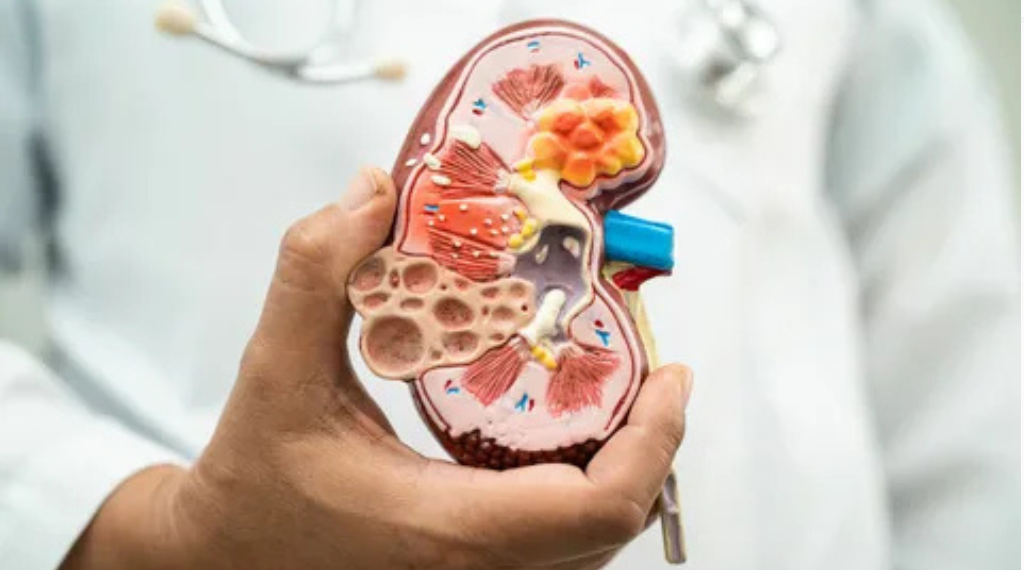
Protecting your kidney health requires consistent, mindful choices. Here are practical tips to keep your kidneys functioning optimally:
Monitor Your Numbers: Know your blood pressure, blood sugar, and cholesterol levels. Keep these within target ranges through lifestyle changes and medication if needed. Request kidney function tests (serum creatinine and estimated glomerular filtration rate) during regular checkups, especially if you have risk factors.
Stay Hydrated Wisely: Drink adequate water throughout the day to help kidneys clear toxins effectively. However, more isn’t always better; excessive water intake can strain kidneys. Generally, aim for 6-8 glasses daily, but adjust based on your activity level, climate, and doctor’s recommendations.
Choose Kidney-Friendly Foods: Emphasize fruits and vegetables with lower potassium content (if potassium restriction is recommended), whole grains, lean proteins in appropriate amounts, and heart-healthy fats. Reduce processed foods, which are typically high in sodium, phosphorus additives, and unhealthy fats.
Control Portion Sizes: Eating appropriate portions helps maintain a healthy weight and reduces the workload on your kidneys. Use smaller plates, measure servings initially to understand proper portions, and eat mindfully without distractions.
Manage Stress: Chronic stress elevates blood pressure and can lead to unhealthy coping behaviors. Practice stress-reduction techniques such as meditation, deep breathing exercises, yoga, adequate sleep, and engaging in enjoyable activities.
Be Proactive About Infections: Urinary tract infections can spread to the kidneys if untreated. Stay hydrated, urinate when needed rather than holding it, practice good hygiene, and seek prompt treatment for urinary symptoms.
Educate Yourself: Learn about kidney disease risk factors, symptoms, and prevention strategies. Knowledge empowers you to make informed decisions and advocate for your health. Join support groups if you’re managing kidney disease, as connecting with others facing similar challenges provides valuable emotional support and practical tips.
Communicate with Your Healthcare Team: Maintain open dialogue with your doctors, ask questions about test results and medications, report new or worsening symptoms promptly, and follow treatment plans consistently. Your healthcare providers are partners in protecting your kidney health.
Remember that kidney disease often progresses silently, making prevention and early detection critically important. By recognizing warning signs, managing risk factors, and adopting kidney-healthy habits, you can significantly reduce your risk of kidney disease or slow its progression if already diagnosed. If you experience concerning symptoms or have risk factors for kidney disease, don’t wait—schedule an appointment with your healthcare provider for proper evaluation and guidance tailored to your individual needs. Your kidneys work hard for you every day; protecting them is an investment in your long-term health and quality of life.
